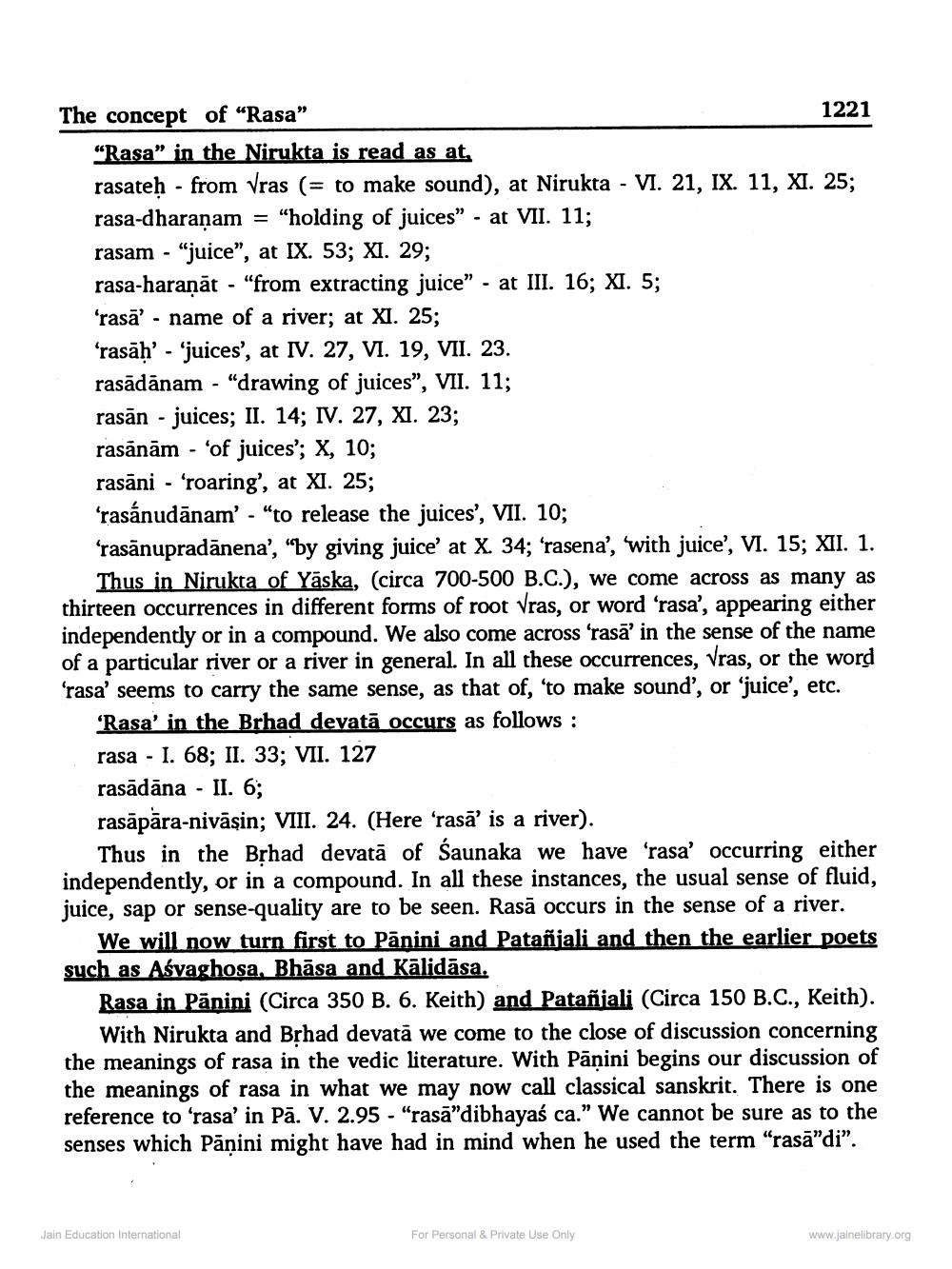________________
The concept of "Rasa"
1221 “Rasa” in the Nirukta is read as at. rasateh - from Vras (= to make sound), at Nirukta - VI. 21, IX. 11, XI. 25; rasa-dharaṇam = "holding of juices” - at VII. 11; rasam - “juice”, at IX. 53; XI. 29; rasa-haraņāt - "from extracting juice" - at III. 16; XI. 5; ‘rasā’ - name of a river; at XI. 25; ‘rasāḥ' - 'juices', at IV. 27, VI. 19, VII. 23. rasādānam - "drawing of juices”, VII. 11; rasān - juices; II. 14; IV. 27, XI. 23; rasānām - 'of juices'; X, 10; rasāni - 'roaring', at XI. 25; ‘rasánudānam' - "to release the juices', VII. 10; ‘rasānupradānena', “by giving juice' at X. 34; 'rasena', with juice', VI. 15; XII. 1.
Thus in Nirukta of Yāska, (circa 700-500 B.C.), we come across as many as thirteen occurrences in different forms of root vras, or word 'rasa', appearing either independently or in a compound. We also come across 'rasa' in the sense of the name of a particular river or a river in general. In all these occurrences, Vras, or the word 'rasa' seems to carry the same sense, as that of, 'to make sound', or “juice', etc.
'Rasa' in the Brhad devatā occurs as follows: rasa - I. 68; II. 33; VII. 127 rasādāna - II. 6; rasāpāra-nivāşin; VIII. 24. (Here 'rasa' is a river).
Thus in the BỊhad devatā of Saunaka we have 'rasa' occurring either independently, or in a compound. In all these instances, the usual sense of fluid, juice, sap or sense-quality are to be seen. Rasā occurs in the sense of a river.
We will now turn first to Pānini and Patañjali and then the earlier poets such as Ašvaghosa, Bhāsa and Kālidāsa.
Rasa in Panini (Circa 350 B. 6. Keith) and Patañjali (Circa 150 B.C., Keith).
With Nirukta and Brhad devat, we come to the close of discussion concerning the meanings of rasa in the vedic literature. With Pāṇini begins our discussion of the meanings of rasa in what we may now call classical sanskrit. There is one reference to 'rasa' in Pā. V. 2.95 - "rasā"dibhayaś ca." We cannot be sure as to the senses which Panini might have had in mind when he used the term “rasā"di”.
Jain Education International
For Personal & Private Use Only
www.jainelibrary.org




